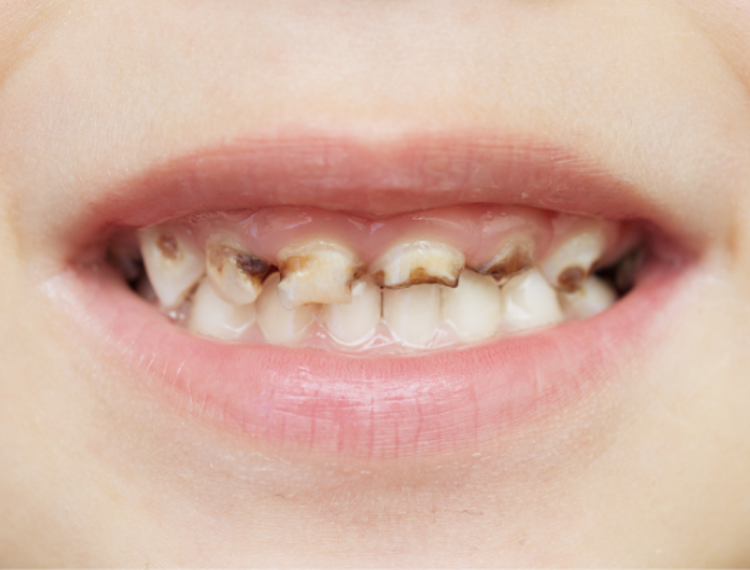
Tooth decay is one of the most common problems that we can have in our mouths. The good news? It can mostly be prevented by following these top tips.
Tip 1. Have a healthy diet
It is well known that consuming sugary foods and drinks can cause tooth decay. Our mouth is a home to many harmless bacteria, but some of these bacteria that use sugar for energy can be harmful to the teeth. The bacteria that use sugar for energy produce acids that dissolve our teeth, which can eventually cause a cavity in the tooth. Reducing foods and drinks that contain sugars is very important to make sure these bacteria do not produce acids that damage our teeth.
Examples of what to avoid
- Sugary drinks, such as soft drinks, energy drinks, sports drinks, cordial, and fruit drinks.
- Candy, particularly the type that stays in your mouth for a long time (e.g. lollipops, toffees, sticky lollies or slowly melting lollies).
While it is hard to completely avoid sugar in your diet, there are some healthy habits for when you have sugary foods or drinks. Try to have them at a mealtime when there is more saliva in your mouth. Saliva helps to prevent tooth decay by washing away some of the sugars and acids, and by keeping bacteria under control. It can also repair the damage caused by acids on the tooth surface. Drink water or plain milk to rinse out your mouth as soon as possible after having sugar.
Tooth-friendly foods and drinks
- Fresh fruits and vegetables (whole, not juiced), especially crunchy vegetables such as celery and carrot which get your saliva flowing.
- Unsweetened dairy products such as cheese and milk contain calcium that is very good for preventing tooth decay.
- Water is the best drink, but unsweetened tea or coffee with milk can also be a tooth-friendly option.
- Sugar-free chewing gum is also helpful to produce saliva but not a good idea if you have any jaw issues.
Tip 2. Brush your teeth regularly with a fluoride toothpaste
The bacteria that cause tooth decay are particularly worse if they are allowed to grow on your teeth for a while. That is why it is important to regularly brush your teeth twice a day to stop the bacteria getting out of control. Make sure you use a fluoride toothpaste, as fluoride makes a big difference by strengthening and repairing our teeth, and make sure you are reaching all the surfaces of your teeth when brushing. Generally speaking, the toothbrush should gently touch both your gums and your teeth, and take at least 2 minutes each time you brush. Cleaning between your teeth is also important. Flossing for small gaps or interdental brushes for big gaps, are good for cleaning between your teeth where a toothbrush cannot reach.
Ask your dentist to check if your toothbrushing is the best it can be. If you do not have a dentist, find one nearby with the ADA's Find-A-Dentist search tool.
Tip 3. Visit your dentist regularly
Tooth decay is preventable, but in its early stages it can also be repaired or healed without a filling. Once a cavity forms, it can keep going through the tooth, causing pain and increasing the amount of treatment required, or even requiring removal of the tooth. Quite often you may be unaware you have tooth decay, and it may only be visible to a dentist or on a dental x-ray. Visiting a dentist for a check-up regularly makes sure tooth decay is detected early, which can reduce the amount of treatment you need and make sure you can prevent decay in the future.


